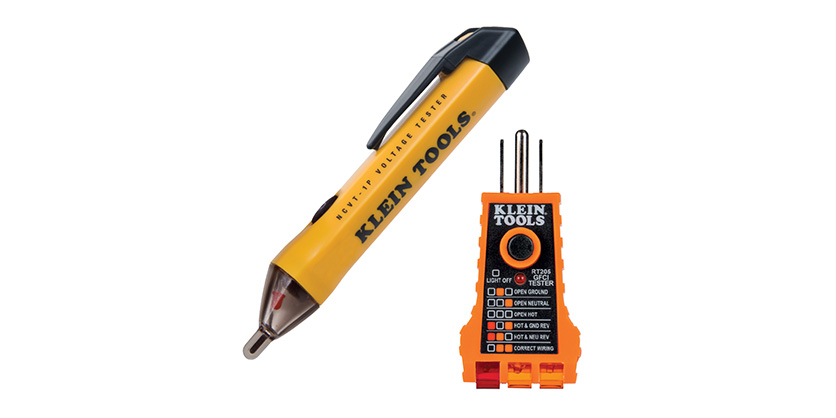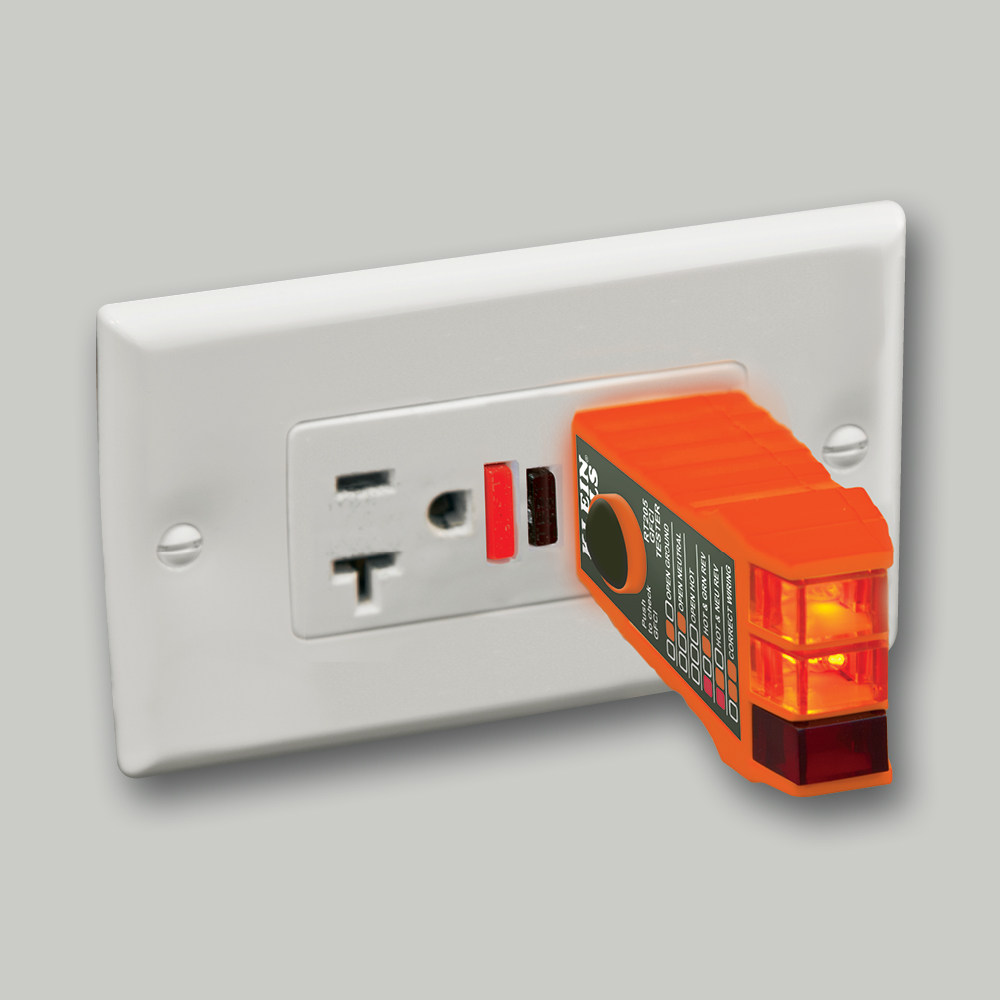New Test Kit from Klein Tools® Brings Together Two Best Selling Tools for Detecting AC Voltage and Wiring Conditions

March 22, 2023

Klein Tools introduces the NCVT1PKIT, taking two our Klein’s best-selling tools and combining them into one convenient test kit.
Non-Contact Voltage Tester

- Provides non-contact detection of voltage in cables, cords, circuit breakers, lighting fixtures, switches, non tamper-resistant outlets and wires
- High intensity, bright green LED indicates the tester is powered on
- When voltage is detected, a high intensity, bright red LED illuminated and an audible tone will sound
- 50 to 1000 VAC power operating range allows broad application
- Auto power-off feature conserves and extends battery life
- Lightweight compact design with a convenient clip to fit securely in your pocket
- Product not recommended for testing tamper-resistant outlets’ use Cat. Nos. NCVT2P or NCVT3P in low voltage mode
- Cat IV 1000V safety rating
- Includes 2 x AAA 1.5-volt batteries
- 6.6’ (2m) drop protection
GFCI Receptacle Tester
- Receptacle tester is designed to detect the most common wiring problems in standard receptacles
- Open ground, reverse polarity, open hot, open neutral, hot/ground reversed
- 110 to 125V AC electrical tester for standard/ GFCI receptacles
- CAT II 125V safety rating
- 6.6’ (2m) drop protection
Test Kit
“Putting together two or more tools that are often used together is something Klein Tools does regularly,” says Sabrina Kalsi, product manager at Klein Tools. “Combining the NCVT1P and the RT205 into this kit gives electricians, maintenance professionals and homeowners and convenient and cost-effective solutions for detecting AC voltage and wiring conditions.”
Sabrina Kalsi, product manager at Klein Tools
For more information, visit www.kleintools.com/new-products or search for #NewKleins on social media.
Related Story
Klein Tools® Introduces Circuit Analyzer RT390 to Easily Identify Common Wiring Faults
Klein Tools introduces the RT390 Circuit Analyzer, designed to identify common wiring faults in standard, AFCI and GFCI outlets.











![Guide to the Canadian Electrical Code, Part 1[i], 26th Edition– A Road Map: Section 56](https://electricalindustry.ca/wp-content/uploads/2022/11/Guide-CE-Code-2.png)




